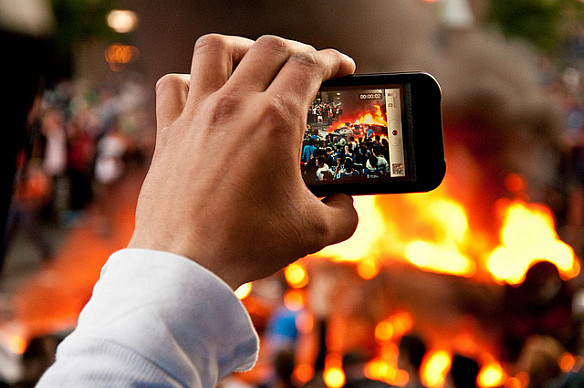Youth, without much self-reflection, certainly feels the fluidity and markless flow of emotions, thoughts and overwhelming stimuli, and has reacted with various defensive postures from back-to-the-land movements to in-your-face hedonism.
Looking at the contemporary world with all its challenges and possibilities, I am reminded of Nietzsche and his admonishment of modern mankind’s quest for freedom through self-overcoming. Maybe it’s Nietzsche that has the most useful insights for us in understanding late-capitalist youth. Youth, without much self-reflection, certainly feels the fluidity and markless flow of emotions, thoughts and overwhelming stimuli, and has reacted with various defensive postures from back-to-the-land movements to in-your-face hedonism. There is a nostalgia for a certain lost Utopian simplicity and relational stability that was imagined and longed for but often unrealized in childhood. The tension between a wistfulness for stability and the existential reality marked by personal emotional turmoil has led to a series of profound ambiguities and dialectical clashes that form the narrative identities of late-capitalist youth.
The structure of “truth” used by the majority culture contained a madness… in which there was little relation between our accepted cultural ideology and the reality of direct human experience.
Nietzsche has much to say to our epoch, since he was describing the essential contradictions between late 19th century modernism and the traditional society out of which it emerged. That society was lost, as well, because it was trapped in old paradigms and structures that did not fit the technology and economic conditions of late l9th century industrialization and capitalism. The structure of “truth” used by the majority culture contained a madness, very much like our current madness, in which there was little relation between our accepted cultural ideology and the reality of direct human experience. The only way to sanity was though recognizing the madness and heroically becoming mad, in the service of freedom and the future existence of mankind.
The potential heroes of change are themselves caught in a powerless sense of confusion. Their tendency to ignore the larger sense of “the world” for their own virtual tribes of pseudo-community blunts their focus and energy.
We are part of the way down this road, with the great disconnect between the mores of the avant-garde youth culture and the media-based reality in which most people are lost in a haze of brainwashed idiocy that makes 1984 seem tame in its forecast–but there is a serious inertia built into this dynamic. The potential heroes of change are themselves caught in a powerless sense of confusion. Their tendency to ignore the larger sense of “the world” for their own virtual tribes of pseudo-community blunts their focus and energy. Pseudo-communities formed in various constructs of social networking ironically give people a false sense of identity and intimacy that blunts the emotional impact of the surrounding insanity, while at the same time giving people a sense of connection and involvement that makes them feel good about their shared ideology, while they blindly contribute to the very insanity they are trying to avoid.
As Nietzsche pointed out, just going with the passions is enslavement.
As Nietzsche would point out, the missing ingredient to any real freedom and in turn the possible creation of a functional, rational future for mankind, is first the recognition of the insanity and the will to free yourself from it through self-overcoming. As Nietzsche pointed out, just going with the passions is enslavement. The passions are currently in the service of the masters. Your are doing the bidding of your corporate handlers every minute. They have complete control of all sources of incoming stimuli, but more importantly they have conditioned your system of expectation and pleasure so that what you think is choice and will is actually carefully controlled. The only way out is a radical reappraisal of who you think you are. We are motivated by drives that naturally tend towards pleasure and away from pain.
“The man who has overcome his passions has entered into possession of the most fertile ground.”
“The overcoming is only the means and not the goal.”
“One must become master over our wrath and lusts.”
“We have to learn to not to react immediately to a stimulus, but to have the restraining, stock taking instincts in control.”
“We must have an independence of mind, opening the possibility of discovering a new path that no one knows, that leads us to a certain sense of pleasure we have not known before. This would lead us to a new configuration of self.”
These quotes from Nietzsche, taken from several sources, give us the flavor of his challenge to find a dramatically new way to experience the world and ourselves. But to accomplish this, we must radically break with the “sense of reality” that holds us in dysfunctional paralysis. To make progress on this path, we must overcome ourselves and gain control over our passions and the unconscious control they have over our sense of ourselves.
There will be more on this in my next post. Coming soon on the DRBU website are transcripts from the course: Buddhism and Postmodernism. Here is a preview: Buddhism and Postmodernism: Nietzsche, Part 1 of 4.

